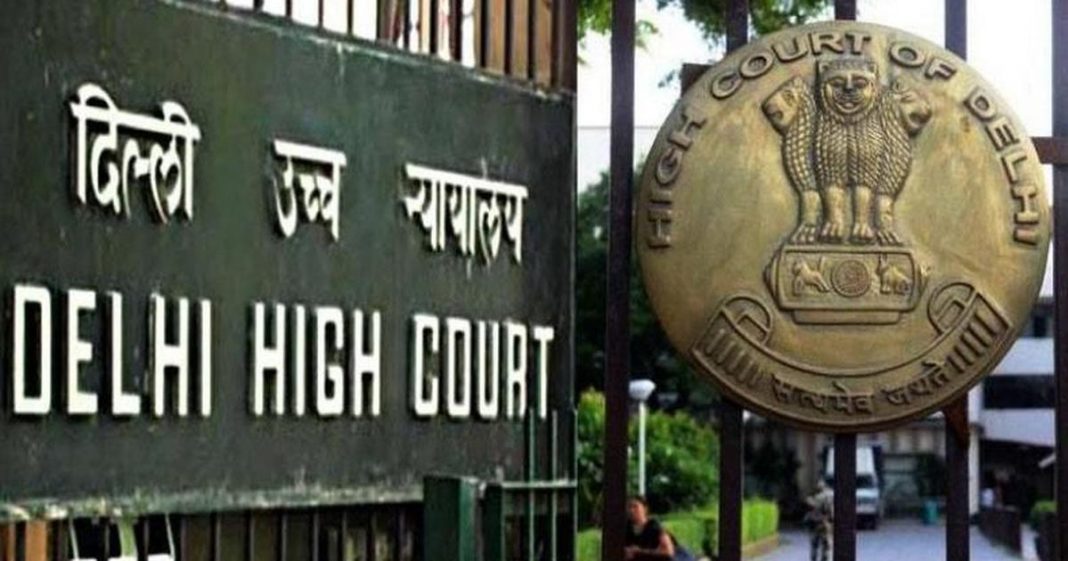Delhi High Court on Friday directed the District Judges to conduct sensitization programs through video conferencing to inform and to sensitize all the presiding officers of the importance of compliance of the mandatory condition of issuing notice to the complainant/victim/informant, and the legal position in this regard in a plea challenging the order passed by Session Judge releasing a person accused under section 376 IPC and Section 4 of The Protection of Children from Sexual Offences Act, 2012 on interim bail for one month without the issuance of a notice on the application.
A single-judge bench of Justice Pratibha M. Singh of Delhi High Court while conducting hearing through video conferencing also noted that the non-issuance of notice to the complainants/informants/victims is not merely a procedural lapse, but is contrary to the unequivocal legislative mandate as also the declared and settled law.
The Court passed its judgment in a plea filed by Advocate Ms. Tara Narula highlighting the legal position and seeking quashing of the grant of interim bail and for police protection. The petition further sought for strict compliance of the amendments to the Cr. PC and the Practice Directions referred to above.
The 11-year-old victim was receiving legal and psycho-social support from HAQ: Centre for Child Rights, an organization working for the protection of Child Rights.
Ms. Tara Narula while talking to India Legal stated that “During the lockdown, the duty sessions courts have been passing bail orders in POCSO without notice. In our analysis, of about 83 orders between 18 April and 30 April, Complainant was not present in 80 and no notice seems to have been given as per the orders available online.”
The Court to ensure effective implementation of the 2018 amendment to the Cr. PC., and further to the practice directions, as also the orders passed by the Division Bench of this Court in Reena Jha Vs. UOI (supra) issued the following directions:
- Whenever an accused who is charged under Sections 376(3), 376- AB, 376 – DA or 376 DB of the IPC or the provisions of the POCSO Act, moves an application for regular bail or interim bail, notice shall be issued to the IO as also any counsel on record for the victim/complainant/informant;
- The IO upon receipt of the bail application and/or the notice of such application shall immediately issue a notice to the victim/complainant/informant in the prescribed format as per ‘Notice To Informant…’ of the Practice Directions. The Practice Directions dated 24th September 2019 along with ‘Notice To Informant…’ are appended to this order for ready reference;
- The service of notice shall be certified by the SHO of the local police station by signing Notice To Informant… at the prescribed place;
- The duly completed Notice To Informant… shall be filed along with the reply/ status report filed by the IO in respect of the bail application and shall be presented to the Court;
- If the IO cannot trace the complainant/victim/informant, the reasons for the same shall be mentioned in the status report. Further, if there is any specific reason for non-appearance of the complainant/victim/informant, the same shall be recorded and placed before the Court;
- In case the complainant/victim/informant has not been traced, the IO shall try to ascertain the whereabouts of the complainant/victim/informant and place the same before the Court;
- The Court, before proceeding to hear the bail application would ascertain the service of notice, and if no notice has been served, either through the IO or the counsel on record, as a secondary safeguard, issue summons to the complainant/victim/informant;
- Once the victim/complainant/informant appears before the Court, and if needed, adequate representation shall be ensured for the victim/complainant/informant either through own counsel or through a legal service authority counsel;
- All the relevant documents required for the victim/complainant/informant to effectively represent the case for opposing the bail shall be provided;
- In every bail order, service of notice or reasons for non-service or non-hearing of the complainant/victim/informant shall be specifically recorded before proceeding to pass orders;
- If the complainant/victim/informant does not appear despite service of notice, bail can be considered by the Court, in accordance with law; and
- In case interim bail is sought for an emergency such as a death in the family or a medical emergency, and awaiting notice to the complainant/victim/informant appears non-feasible, in a rare case, reasons for the same shall first be recorded in the order.
The Court further directed that it is deemed appropriate to direct that any non-compliance of the mandatory condition of issuance of notice and service of notice to the complainant/victim/informant could entail consequential action, in accordance with the law.
-India Legal Bureau


